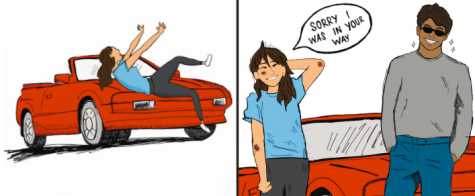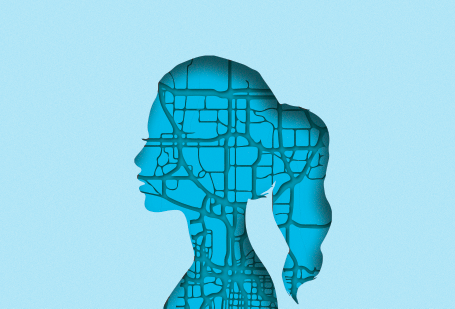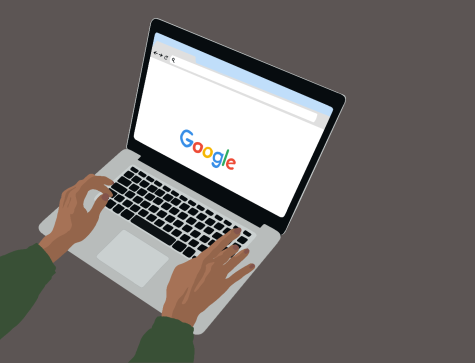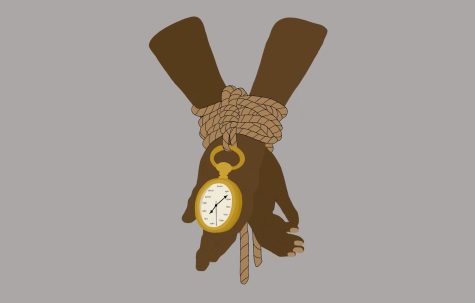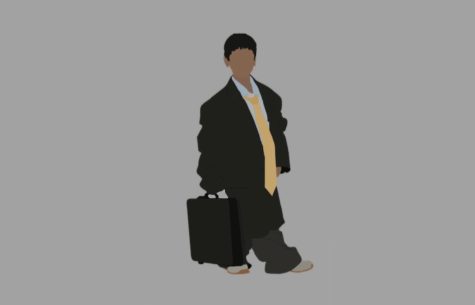Staff Editorial: 100% Human
We have progressed to a point in our society where most people, unless willfully ignorant, recognize negative stereotypes as harmful. Saying “All Muslims are terrorists,” is not only extremely offensive, but simply untrue. Feeding into that negative stereotype hurts the image of any individual who is just practicing their religion. Because we believe most people understand how wrong this statement is, we now must turn our attention to the negative impact of a “positive” stereotype.
Positive stereotypes are meant to describe the admirable, desirable or beneficial qualities and characteristics of the members of a particular group or social category. Despite this intent, these stereotypes actually create blanket assumptions that unrealistically represent the individuals they pertain to. Statements like “All Asians are really smart,” or “Gay men have great fashion sense,” have no actual proof or science to back them up.
In addition to presenting false narratives about different demographic groups, stereotypes can have harmful effects on the people they target. Though not all stereotypes have negative connotations, they still create unfair expectations for how people should act and be perceived by others. Take the stereotype “If you’re tall, you should be playing basketball or volleyball.” Imagine someone who is well-above average in height hears this stereotype and is suddenly overwhelmed with a new external pressure. Members of society are expecting them to excel at something, no matter their feelings, goals and actual abilities.
To put it plainly, positive stereotypes are just microaggressions disguised as compliments. Microagressions are repeated statements or actions regarded as instances of indirect or unintentional discrimination against members of a marginalized group, such as a racial or ethnic minority. Both positive and negative stereotypes are considered to be microaggressions, as they can all cause negative impacts on their subjects. When it comes to microaggressions, it is important to understand that despite the intention of the statement, the recipient will likely take it offensively.
Everyone perceives life differently, because everyone has had unique life experiences. If you are raised with the idea that “Black people are inherently superior at athletics,” then you live your life with that “positive” bias. To confirm your bias, you subconsciously seek out Black individuals with high athletic abilities, and every time you find one, that bias is reaffirmed. However, it is utterly ridiculous to attempt categorizing and molding an entire race into one idea.
Feeding into this concept fails to take into account the distinct differences within the group. Additionally, it unjustly paints all Black athletes with the same brush, thus ignoring the unique strengths and abilities of each person. Not to mention, this idea invalidates the hard work and effort put in by a Black individual. Reducing a person to what they are allowed to be good at based on one aspect of their being is dehumanizing.
Stereotypes like this set the bar unrealistically high. They can inhibit an individual’s ability to perform well. Added pressure from not fitting the stereotype may even lead to an identity crisis or depression. It would be nonsensical to assume none of us have ever fed into a positive stereotype, but let’s just be aware. Understanding the difference is important, but change is made with action. Improvement cannot be met unless we all do our part to fix our ways.

Julia Moser is a senior and the Editor-in-Chief of “The Express” and BVNWnews. This is her third year on staff, previously serving as Managing Editor. Julia is a member of the BVNW varsity cheerleading squad, in addition to being involved in NHS and Quill & Scroll. Outside of room 902, she enjoys spending time with her friends and family as well as binging her favorite shows, including “Stranger Things” and “Friends.” Julia is eager to serve as EIC and is hopeful for her staff’s sucess this year. She can not wait to see what this year holds and is excited to grow as a leader.



